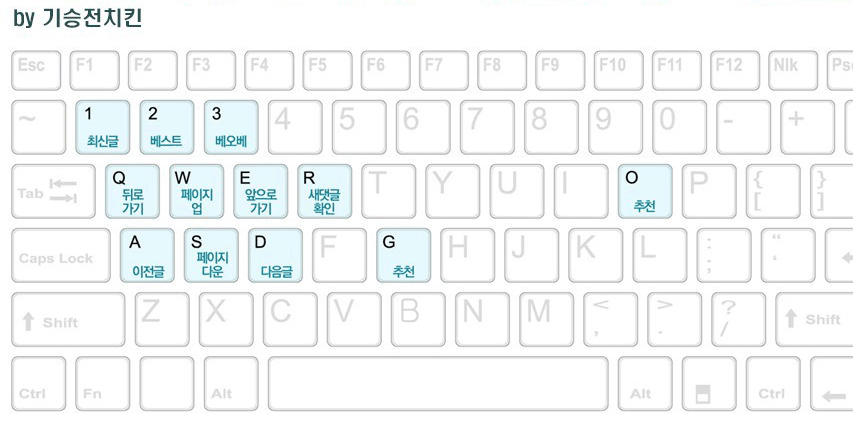사드배치를 반대합니다.
안녕하세요.
한국내 사드 배치와 한일 정부간 위안부 합의가 미국의 아시아에 대한 전략에서 출발하는 것으로 보여지는 자료들입니다.
미국은 미국의 이익을 우선으로 전략을 수립합니다. 이러한 상황에서 미국 ‘전략 및 국제 연구 센터’의 아래의 두가지 전략 (1. 한반도 미사일 방어시스템 고도화 및 연계 강화, 2. 일한간 미일한간 동맹강화) 이 우리나라에 어떠한 변화를 가져올지 우리 나름의 평가가 필요하다고 생각합니다.
저는 이러한 변화가 한일미, 북중러의 긴장관계로 나타나고, 이러한 대립관계의 긴장 유지 및 적대감 강화가 한반도를 긴장의 정점에 서게 만든다고 생각합니다. 미국이나 일본은 전선을 한반도로 가져가는 효과를 얻겠지만, 이러한 긴장관계 속에서 한반도가 언제까지 평화를 유지할 수 있을지는 우리에게는 너무나 두려운 길이라 생각합니다.
한반도가 긴장의 정점에 서지 않고, 오히려 한반도가 화해의 시작점이 되어서 동아시아의 화해를 만들어나가는 역할을 하면 좋겠습니다. 유럽처럼 기차타고 국경을 건널때 철조망이 없는 아시아를 꿈꿔봅니다.
---
자료 1. “Pivot 2.0” How the Administration and Congress Can Work Together to Sustain American Engagement in Asia to 2016, CENTER FOR STRATEGIC AND INTERNATIONAL STUDIES (CSIS), January 2015, U.S.
자료 1. “지렛대 2.0” 미국 행정부와 의회는 어떻게 협력하여 2016년까지 미국의 아시아에 대한 영향력을 유지할 수 있을 것인가. 전략 및 국제 연구 센터 (CSIS), 2015년 1월. 미국.
Chapter 4. The Next Two Years in Korea
4장. 향후 2년간 한국에서의 정책
What must the administration contend with in its remaining two years in office on the Korean Peninsula? First, the United States is likely to see the next series of North Korean nuclear and ballistic missile tests. ...
행정부가 남은 임기의 2년 동안 한반도에 대하여 이해할 것은 무엇인가? 첫째, 미국은 북한의 핵과 탄도미사일 발사 시험을 보게될 것이라는 점이다.
In any event, the administration must be prepared to meet these provocations with concrete measures that acknowledge the necessity of deterring a nuclear North Korea. This includes deploying more advanced missile defense systems on the peninsula and its vicinity, as well as encouraging the ROK to enhance its joint operational capabilities with the existing U.S. missile defense assets and ISR (intelligence, surveillance, and reconnaissance) sensors in the region. ...
어떠한 경우에도, 행정부는 이러한 시도에 대하여 단호한 대응태세를 준비함으로써 북한의 핵개발 의지를 약화시켜야 한다. 이러한 대응태세에는 한반도와 그 주변에 보다 발달된 미사일 방어시스템을 마련하는 것과 함께, 한국으로 하여금 미국의 미사일 방어시스템과 정보 탐지 감지 장비의 통합운영 능력을 향상시키도록 독려하는 것을 포함한다.
The administration must also work to mend Japan-ROK relations. ... The bilateral relationship between Seoul and Tokyo, and the three-way U.S.-Japan-Korea relationship, should, in the administration’s eyes, be seen as the most reliable source of stability in Asia. Others might argue that the anchor is the U.S.-China relationship, but U.S.-China relations are more the effect, not the cause, of stability. That is, a stable Washington-Beijing relationship equates with regional peace, but the best influence on this relationship is a strong U.S.-Japan-Korea relationship. ...
행정부는 또한 일본과 한국의 관계를 치유하기 위해 노력해야 한다. 일본과 한국의 양자 관계, 그리고 미국-일본-한국의 삼자 관계는, 행정부에 있어서, 아시아의 안정에 가장 신뢰할만한 기반으로 인식되어져야 한다. 다른 사람들은 미국과 중국의 관계가 중요한 축이라고 이야기 한다. 하지만 미국과 중국의 관계는, 안정을 위한 원인이 아니라, 안정에 따른 결과이다. 다시 말하면, 강력한 미국-일본-한국의 공조를 통하여 안정적인 미국-중국의 관계가 유지될 수 있는 것이며 이것이 지역의 안정으로 이어진다는 것이다.
...
So, with the 50th anniversary of Japan-ROK normalization in 2015, the White House must work to close the gap between the allies in the form of completion of the information-sharing agreement (General Security of Military Information Agreement, GSOMIA), military parts servicing agreement (Acquisition and Cross-Servicing Agreement, ACSA), a high tempo of trilateral consultations and exercising, and eventually, a collective defense statement among the three allies. This all must be done with a light touch, not American pressure, given sensitivities in Korea, but the message must be clear: The two allies must work together on common security needs despite unresolved historical-emotional issues.
따라서, 2015년 일본-한국의 정상화 50주년을 맞이하여, 백악관은 두 동맹국의 틈을 없애도록 노력하여야 하며, 이는 정보교환협정(GSOMIA)의 완료, 군사부품 서비스 협정(ACSA), 삼자간의 협력과 작전 수행의 고도화를 통하여 궁극적으로 통합 방위 선언을 완료하는 것을 의미한다. 이러한 모든 것은 부드러운 터치로 이루어져야 한다, 미국의 압력이 아니라, 이는 한국이 정서적으로 민감하기 때문이다. 하지만 메시지는 명료하다: 두 동맹국은 해결되지 않는 역사적-감정적 사안에도 불구하고 공동의 안보 수요에 함께 대응해야 한다는 것이다.
자료 2. 일본 관방상 나카타니의 기자 회견 (2015년 4월 10일)
...
Question: I have a related question. What would you like to discuss with the ROK counterpart if the ministerial meeting is realized?
기자: 관련된 질문이 있습니다. 각료간 회담이 성사된다면 한국과 무엇을 상의하겠습니까?
Minister: First of all, we would like to discuss the pending issue of the Acquisition and Cross-Servicing Agreement (ACSA) and the General Security of Military Information Agreement (GSOMIA), which involve information sharing and resource cooperation. With the detailed contents nearly completed, they had once come close to conclusion but this has yet to be realized. Therefore, we would like to deepen relations with the ROK in this area, as well as missile defense in light of the fact that missiles from North Korea have become a serious threat to Japan.
...
관방상: 우선적으로 완료되지 않은 사안인 군사부품 서비스 협정(ACSA) 과 정보교환협정(GSOMIA)을 의논하고 싶다. 세부적인 내용들은 거의 완료가 되었으며, 아직 합의가 이루어지지 않았으나 거의 합의에 다다른 적이 있었다. 따라서 이에 대한 한국과의 관계를 긴밀히 하고 싶으며, 또한 미사일 방어에도 관계를 긴밀히하고 싶다. 이는 북한으로부터의 미사일이 일본에 심각한 위협이 되고있기 때문이다.
Question: My question deviates from the issue of Japan-ROK defense. The U.S. Forces in the ROK have allegedly indicated their intention to place a Terminal High Altitude Area Defense (THAAD) missile system in the ROK. As far as missile defense is concerned, I gather that this will have some implications for Japan's defense. What is your view on the placement of a THAAD missile system in the ROK?
기자: 일본-한국의 국방 사안에서 벗어난 질문을 하고싶다. 주한미군은 한국내에 사드 배치에 대한 의지를 강력하게 표현하고 있다. 미사일 방어와 관련된 만큼, 나는 이것이 일본의 방어에 영향을 미친다고 보고 있다. 관방상의 의견은 어떠한가?
Minister: This is a defense policy matter that will be decided in the ROK. Issues such as stability in East Asia are also matters between the United States and the ROK. U.S. Secretary of State Ashton Carter went to the ROK after visiting Japan, and the United States and the ROK discussed these matters. During Secretary Carter's visit to Japan, discussion took place on missile defense between Japan and the United States. Japan and the ROK need to work together closely on missile defense, including on information exchange and sharing. I hope to discuss these matters with the ROK.
관방상: 이것은 한국내에서 결정될 방어 정책이다.동아시아의 안정은 미국과 한국의 사안이기도 하다. 미국의 연방비서 Ashton Carter는 일본 방문후 한국을 방문하였고, 미국과 한국은 이러한 사안을 논의하였다. Carter 비서가 일본을 방문하였을 때 일본과 미국 간의 미사일 방어에 대한 논의가 있었다. 일본과 한국은 미사일 방어에 함께 협력하여야 할 필요가 있으며, 이는 정보 교환과 공유를 포함한다. 나는 한국과 이러한 것들을 논의하고 싶다.
Question: I have a related question. During the previous meeting on GSOMIA, the MOD and the Ministry of National Defense of the ROK were able to reach an agreement, but the Cheong Wa Dae put a stop to the agreement in consideration of anti-Japanese sentiment. Regarding anti-Japanese sentiment, do you perceive that this time the environment is conducive to the conclusion of GSOMIA?
기자: 관련된 질문이 있다. 지난번 정보교환협정(GSOMIA)에 대한 미팅에서 일본 국방부와 한국 국방부는 합의에 도달할 수 있었지만, 청와대가 반일 감정을 고려하여 이를 중지시켰다. 반일 감정과 관련하여, 관방상은 이번에는 주변 여건이 좋아져서 협정에 이를 수 있다고 보는가?
Minister: This is up to the ROK to decide. Because an agreement has been reached on the content among our defense authorities, I hope that the agreement is swiftly approved in the ROK
...
관방상: 이는 한국이 결정할 사항이다. 협정의 내용은 양국의 국방 기구가 합의를 이루었다. 나는 이 협정이 한국에서 순탄하게 승인되길 바란다.
Question: I have a question about GSOMIA. Japan, the United States, and the ROK signed a memorandum of understanding on information sharing last December. Is my understanding correct that Japan will explore ways to conclude a separate agreement from the MOU, which is GSOMIA?
기자: 정보교환협정(GSOMIA)에 대한 질문이 있다. 지난해 12월 (2014년)에 일본, 미국, 한국은 정보교환에 대한 양해를 서명하였다. 이해하기로, 일본은 이와 별도로 정보교환협정(GSOMIA)을 마무리하기 위하여 방안을 찾고 있나?
Minister: Last year's arrangement was on cooperation among the three countries of Japan, the United States, and the ROK. GSOMIA is a bilateral agreement between Japan and the ROK. I believe this agreement is necessary to conduct exercises, cooperation on equipment, and all kinds of operations, such as missile response. I consider that a bilateral GSOMIA is necessary.
...
관방상: 지난해의 양해는 일본, 미국, 한국 간의 삼자간 협조에 대한 것이다. 정보교환협정(GSOMIA)은 일본과 한국의 양자간 합의이다. 나는 이 협정이 훈련, 장비 협조, 그리고 미사일 방어를 포함한 모든 종류의 작전 수행에 필요하다고 믿는다. 나는 양자간 정보교환협정(GSOMIA)이 필수요소라고 본다.













